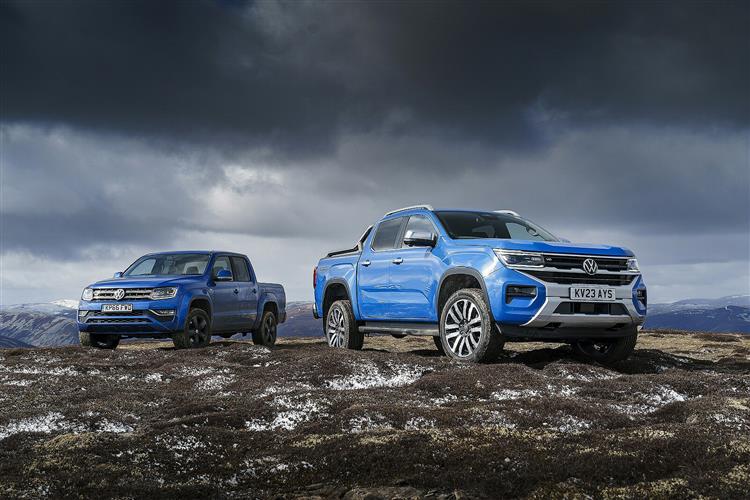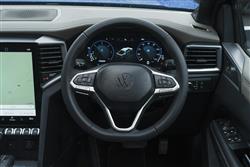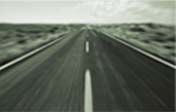ROK STEADY (some text hidden) --NONE--
By Jonathan Crouch
Volkswagen's Amarok tries to reinvent itself in second generation form. Jonathan Crouch takes a look.
Ten Second Reviewword count: 50
As other brands leave the pick-up segment, Volkswagen reasserts its commitment to the sector with this second generation Amarok. Developed alongside the fourth generation Ford Ranger, this South African-built light truck aims to deliver the car-like quality feel customers will want, but with even greater practicality and off road capability.
Backgroundword count: 155
Want a posh pick-up? Then this, on paper at least, is your best option, Volkswagen's second generation Amarok. The original version launched in 2010, went on to sell 830,000 worldwide and is still in production in Argentina. This new one's rather different, built for VW by Ford in Pretoria, South Africa and designed in concert with arguably its closest rival, the Ford Ranger. Wolfsburg wants us to know that it's still very Volkswagen though, with an image slightly up-market of that of the Ford, an arguably more car-like cabin and a lot of the drive assist tech features we've recently become used to seeing on VW cars. It should appeal to a wider market as well. Previously, people rarely considered an Amarok as an alternative to something like a Toyota Hilux. Now they might because in this form, it can tow more, carry more, go deeper through water and go further off road. Sounds promising.
Driving Experienceword count: 211
As before, the Amarok is leaf-sprung, with a live axle at the rear, but this time round it shares some of its engines with the rival Ford Ranger - though not all. There are basically two TDI diesel powerplants on offer, starting with a four cylinder 2.0-litre unit offering 170PS in manual gearbox base form, or 205PS with a 10-speed automatic. The top-line alternative is a 3.0-litre V6 diesel, which is of course auto-only and puts out 240PS. The suspension set-up isn't much different from before, using a beam axle rear system with leaf springs, as does the Ranger. But Volkswagen claims to have engineered it for smoother on road use. Four-wheel drive is standard and is a permanent set-up, which uses a 2-speed electromechanical transfer case for added traction and has four modes for use on different services like tarmac, rocks and snow. On that subject, off-road ability is claimed to be much improved this time round. Fording depth, for instance, is up from 500 to 800mm. Shorter overhangs have improved overall capability no end: this MK2 model's front and rear approach angles are 29-degrees and 21-degrees respectively, while it's ramp angle is 21-degrees. For really gnarly stuff, there's a lockable rear differential and a re-engineered low range transfer case.
To see the full road test text contact us on 0330 0020 227
Pictures (high res disabled)

.jpg)
|
.jpg)
|
.jpg)
| |||
.jpg)
|
.jpg)
|
.jpg)
| |||
.jpg)
|
.jpg)
|

|
Scoring (subset of scores)
Category: Pick-Ups
| Performance | |
| Handling | |
| Comfort | |
| Space | |
| Styling, Build, Value, Equipment, Depreciation, Handling, Insurance and Total scores are available with our full data feed. | |



